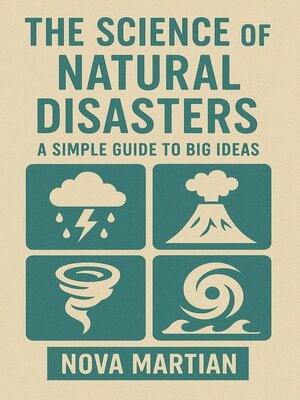
Sign up to save your library
With an OverDrive account, you can save your favorite libraries for at-a-glance information about availability. Find out more about OverDrive accounts.
Find this title in Libby, the library reading app by OverDrive.



Search for a digital library with this title
Title found at these libraries:
| Library Name | Distance |
|---|---|
| Loading... |
Discover the complex forces that shape our world in "The Science of Natural Disasters: A Simple Guide to Big Ideas." This accessible guide unpacks the mysteries behind Earth's most powerful events, from earthquakes and volcanoes to hurricanes, floods, and wildfires. With a thoughtful exploration of both the science and the history of disasters, the book offers clear explanations of how natural hazards arise, how they become disasters, and why understanding them is so crucial for humanity. Each chapter systematically breaks down the mechanics of disaster—from tectonic shifts to extreme weather patterns—grounding readers in scientific fundamentals and real-world examples.
Beyond the physical science, the book examines the human dimension of disasters: how our societies prepare, respond, and recover. It delves into pressing topics such as the influence of urbanization, the roles of governments and emergency responders, and the importance of education and community awareness. By highlighting the disproportionate impact on vulnerable populations and strategies for building resilience, this guide presents a comprehensive look at the ways individuals and communities can confront and adapt to these formidable natural forces.
At a time of rising climate uncertainty and technological advancement, "The Science of Natural Disasters" also explores the frontiers of forecasting, the promise of innovations in disaster protection, and the necessity of both local and international collaboration. Packed with lessons learned from history and fueled by optimism for future progress, this book not only informs but empowers readers—equipping them with knowledge and practical insights to help build a safer, more resilient world.







